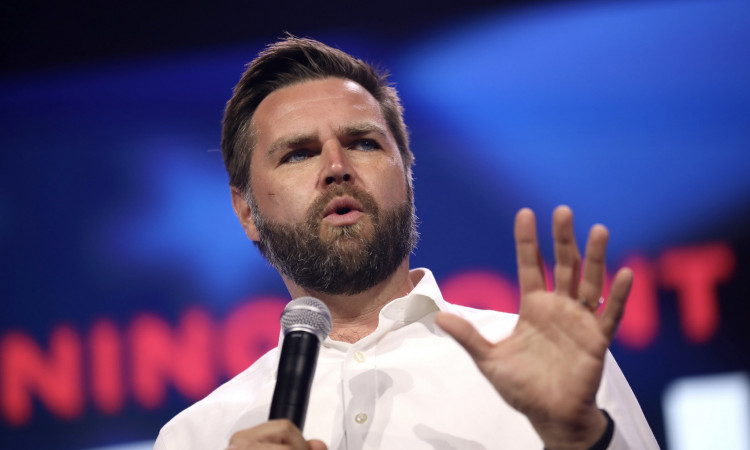The Biden-Trump administration's push to finalize a peace deal between Russia and Ukraine faces growing strain as Vice President JD Vance on Wednesday threatened to withdraw U.S. involvement from negotiations unless Kyiv and Moscow accept what he called a "very explicit proposal," while Secretary of State Marco Rubio abruptly pulled out of a critical summit in London.
"We've issued a very explicit proposal to both the Russians and Ukrainians, and it's time for them to either say yes or for the U.S. to walk away from this process," Vance said during an official visit to India. "We've engaged in an extraordinary amount of diplomacy, of on-the-ground work."
The peace proposal-framed as former President Donald Trump's "final offer"-was presented to European officials in Paris last week. According to officials briefed on the document, the plan includes U.S. recognition of Russia's annexation of Crimea and de facto control over much of the territory seized during its 2022 invasion. It also bars Ukraine from joining NATO, though membership in the European Union remains a possibility.
The framework promises:
- Lifting all U.S. sanctions imposed on Russia since 2014
- Enhanced U.S.-Russia economic cooperation, particularly in energy
- A vague "robust security guarantee" for Ukraine from European and non-European countries
- The return of a small portion of Kharkiv oblast to Ukraine
- Ukrainian access to the Dnieper River
- Reconstruction funding, with no specifics on financing sources
Ukrainian President Volodymyr Zelensky rejected any proposal that acknowledges Russian control of Crimea, stating Tuesday, "Ukraine will not legally recognize the occupation of Crimea. There is nothing to talk about. It is against our constitution."
Following Rubio's withdrawal, the U.S. delegation in London is being led by Trump's special envoy for Ukraine and Russia, retired Gen. Keith Kellogg. The British Foreign Office said official-level talks would continue behind closed doors but confirmed the summit had been downgraded.
Tensions further escalated after Vance, asked to clarify whether the U.S. was calling for freezing territorial lines as they stand, stated, "No, I didn't say that. What I said is the current line, somewhere close to them is where you're ultimately, I think, going to draw the new lines in the conflict... there's gonna have to be some territorial swaps."
The diplomatic standoff comes as fighting intensifies again in Ukraine. On Wednesday, a Russian drone strike on a civilian bus in the Dnipropetrovsk region killed nine and wounded at least 30, Ukrainian officials said. Russia's National Guard claimed it downed 17 Ukrainian drones overnight.
The Trump administration's special envoy to the Middle East, Steve Witkoff, is expected to travel to Moscow this week to meet with President Vladimir Putin. The Kremlin confirmed the visit but declined to provide details.
White House Press Secretary Karoline Leavitt said Tuesday the administration hopes the talks are "moving in the right direction" but declined to say what disengagement from peace efforts might entail.
Though Kyiv has long resisted pressure to cede any territory, U.S. officials have grown increasingly impatient. he would "have to see an enthusiasm to want to end it," Trump said recently. Rubio echoed that stance last week, warning that Washington could "walk away" from the process absent meaningful progress.
Moscow has previously stalled ceasefire discussions and rejected an earlier U.S.-backed 30-day truce. But under renewed diplomatic pressure, both Russia and Ukraine have signaled openness to negotiations for the first time since the early months of the invasion.






